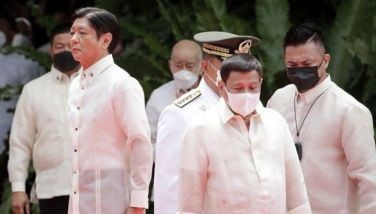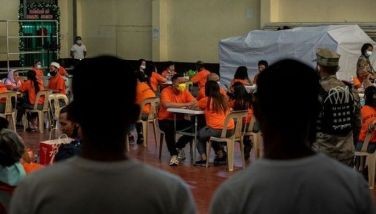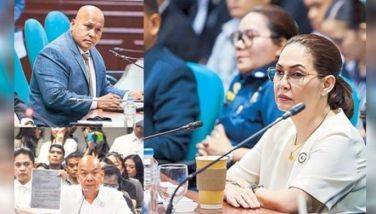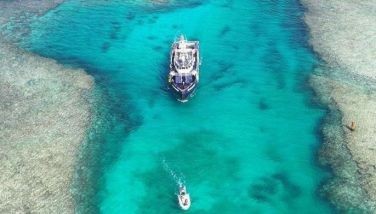Students learn climate adaptation in German school
MANILA, Philippines - The Philippines can take its cue from German institutions on how to effectively teach climate change adaptation and mitigation to young children.
Students at the Gustav Falke School, a state-run primary school in Berlin, learn climate adaptation and mitigation through hands-on projects.
Sabine Gryczke, school principal, believes that when children are educated on climate change, they can reduce the vulnerability of themselves and their communities to risk and contribute to sustainable development.
“The pupils here are kind of like pioneers. They bring back the lessons to practice at home,” Gryczke told Filipino journalists who recently participated in the German government-sponsored climate policy study tour in Berlin and Hamburg.
A student said she knows that simple measures such as turning off lights in unused rooms would not only lower energy consumption but reduce emission of greenhouse gases (GHG) as well. Gases that trap heat in the atmosphere are called greenhouse gases.
Some of the students’ projects were houses for creatures threatened by climate change, including a bee hotel, and houses for birds and hedgehogs.
They also planted vine trees to provide cooling summer shade as well as insulation against heat loss in winter.
Climate curriculum
The climate change curriculum, developed by a group of teachers at the Gustav Falke School, was implemented in 2009.
Gryczke said the core climate change curriculum is taught to grade 5 and 6 students or 11- and 12-year-olds.
She said 120 of the school’s 460 students are directly involved in climate change-related projects. Parents also participate in their children’s projects.
Gryczke noted that most children at the school come from immigrant families.
Last year, a group of students of the Gustav Falke School won in the Berlin schools competition on environmental protection for their project, “Can a car ever be environmentally friendly?”
In the Philippines, the Department of Education (DepEd) is working to include climate change lessons in the basic education curriculum to better educate not only the students but also the public.
“Definitely, we will include climate change in the curriculum of our students and not only that, more concrete measures such as the construction of more typhoon-resistant schools will be instituted,” outgoing Education Secretary Armin Luistro said in an earlier interview.
Public transport
In the city of Hamburg, another type of climate change mitigation curriculum is being taught to students.
The Hamburger Verkehrsverbund (HVV) or Hamburg Traffic Association – a consortium of private and public transport companies – teaches young students how to use public transportation safely and properly.
“Public transport is a contribution to efforts against climate change,” said Christoph Unland of the HVV School Advisory Service.
He said an effective public transport system can reduce travel by private cars that emit carbon dioxide.
Greenhouse gas emissions across the European Union have fallen by almost a quarter since 1990, according to the latest data from the European Environment Agency (EEA).
The EEA said this was mostly due to a warm winter which reduced the need for heating, as well as an increase in renewables such as wind and solar power.
Last October, the Philippines pledged to reduce its GHG emissions by 70 percent by 2030, coming from the energy, transport, waste, forestry and industry sectors.
- Latest
- Trending




























